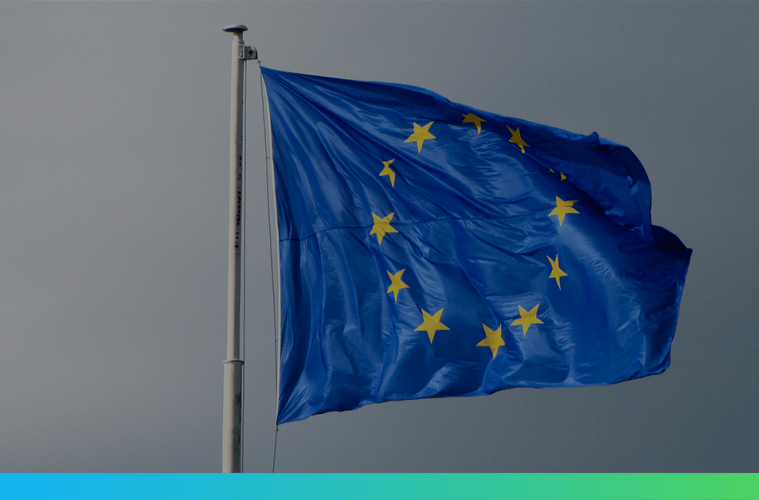- Post-referendum SMEs rush to lock in lower sterling rates following 30 year GBPUSD lows
- SMEs pay for pre-referendum indecision following subsequent fall in sterling
- World First data shows highest concentration of hedging trades on 24th June as SMEs react
- SMEs retrench from Europe with a 15% reduction in Q2 EUR trades (Q1 49% v Q2 34%)
- 77% of UK SMEs think sterling will be volatile in Q3 – a 22 percentage point increase Qo
World First’s Q2 2016 Global Trade Barometer has captured the knee-jerk reaction of UK SMEs to a plunging pound in the wake of the UK’s historic Brexit result. SMEs moved quickly to protect their businesses from extreme volatility in currency markets with the highest concentration of hedging trades in 2016 taking place on Friday 24th June.
However, the reaction of SMEs to lock-in rates and hedge their currency exposures in the immediate aftermath of the referendum result contrasts sharply with their behaviour in the preceding three months – a mixture of confusion and not knowing which way sterling would move seem to have caused the initial paralysis. SMEs’ use of hedging products (namely, forward contracts and currency options) declined throughout Q2, falling 54% in the week before the referendum compared to their activity at the start of February – just before David Cameron announced the date of the EU referendum
SMEs’ volatility concerns significantly impacted investment decisions in Q2
The latest Global Trade Barometer also reveals the impact of currency volatility on UK SMEs’ investment decisions with one in four (24%) stating it had negatively impacted decisions to support development and growth in Q2 – a 9 percentage point increase on Q1 (15%).
In addition, 46% said that they were worried about on-going currency volatility and the impact it could have on their business, a 15 percentage point increase from Q1 (31%). 77% also think sterling will be volatile in Q3 – a 22 percentage point increase compared to their views last quarter.
Trade flows to Europe fall in Q2 as SMEs look elsewhere
The euro remained UK SMEs’ currency of choice this quarter, however the proportion of currency trades denominated in euros fell sharply, from 49% to just 34% in Q2 as the USD came back into favour.
Despite the immediate uncertainty, UK SMEs continue to trade internationally and explore new export markets with Norway and Canada seeing 25% and 20% increases in payments quarter on quarter respectively.
Commenting on this quarter’s Global Trade Barometer, Jeremy Cook, Chief Economist at World First said: “Friday 24th June will go down in history as the one of the worst days in sterling’s history, following huge fluctuations as Brexiteers eventually won the day. It may also prove to be a pivotal day for the UK’s importers and exporters, with the latter rubbing their hands with glee whilst many of the former would have been left with their head in their hands. Now more than ever, businesses need a currency strategy to help them mitigate the risks to their business of future volatility, as we believe that volatility, uncertainty and fear is here to stay. .”
UK SMEs concerned about future prospects following Brexit decision
A significant portion (46%) of SMEs disagreed with the statement that the outcome of the EU referendum vote had been positive for their business’ future prospects, whilst only 29% agreed (a further 25% said that they still didn’t know).
Perhaps having been negatively impacted by a movement in rates, there has been a 7 percentage point increase (Q1 7% v Q2 14%) in the number of SMEs saying that they are not confident in their business’ ability to manage currency risks.
Jeremy Cook added: “It is easy to get swept up in all the apparent doom and gloom as the UK wrestles with its political and economic future, but this is an opportunity for some businesses to flourish. Exporters have seen their price competitiveness improve in light of the recent fall of the pound and a cheaper sterling could allow for an investment boost. The focus for UK SMEs should be to implement a ‘fix-it’ currency strategy and protect themselves from any future volatility.”
—Ends—
Methodology:
1All figures, unless otherwise stated, are from YouGov Plc. Total sample size was 515 senior decision makers in small/medium British businesses. Fieldwork was undertaken between 27th – 30th June 2016. The survey was carried out online. The figures have been weighted and are representative of all British business size. World First data on client contracts was collated between April 1 2016 and June 30 2016 and refers to UK corporate desk clients only


